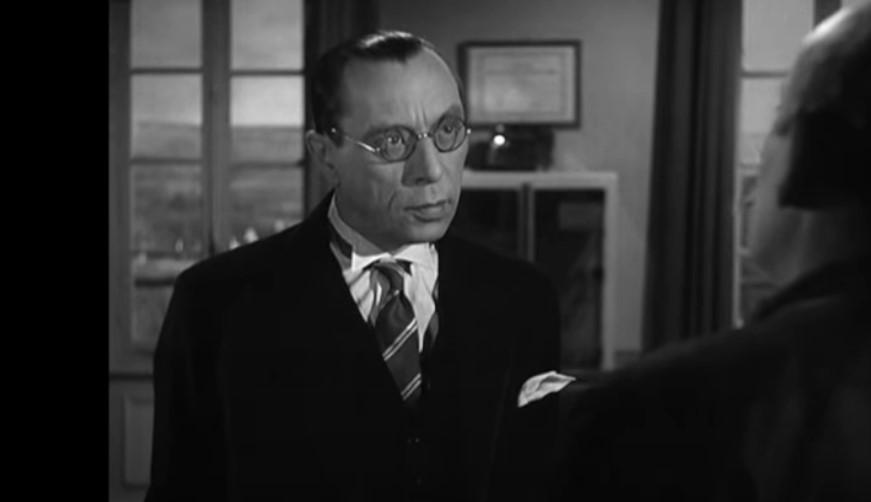Olivier Rony is a literature teacher and author. He has published
Louis Jouvet
(Ed. Gallimard, 2021),
Jules Romain ou l'Appel du monde
(Ed. Robert Laffont, 1993) and
Les Années roman
,
1919-1939 (
Ed. Flammarion
,
1998).
"
This immense monument of the work of Jules Romains, full of niches and chapels, always ready to suddenly transform itself into a theatre, into a magic lantern, into quarries where Quinette roams, into a basilica of course, into a bistro on the quays of the Villette where white wine flows, on the bridge of the Moselle where you find yourself face to face, at the beginning of
Donogoo
, Lamendin and Benin, in a work or consultation office, in a casino, on a transatlantic, in a craftsman's shop, brothel or castle, how would you like us to visit it?
asked Jean d'Ormesson on June 6, 1974, in his reception speech at the French Academy.
To this invitation, he then responded eloquently and, as a good normalien evoking a former normalien, opened up, throughout his remarks, happy and fruitful avenues of analysis of a work covering more than sixty years of an existence. dedicated to the work of the mind.
And half a century after the death of the writer, on August 14, 1972, what encounters would we, today's readers, make when re-reading the author's theatre, poetry and novels, among others, d '
Europe
, of
Mr. Le Trouhadec seized by debauchery
and
Death of someone
?
First, with this great poem published in 1916 (almost underground), we would meet a man still young and convinced that his era would be that of the peaceful organization of the continent to which he belonged but which was then ravaged by a fratricidal war.
Then, in the company of Jacques Copeau and Louis Jouvet, we would meet this time the playwright who, in the twenties, would open the way to a comedy turning his back on the complacency of fashionable theatre.
Finally, we will go to meet the research of the "new novelist", inventor, in 1911, of the singular story of "the life of a dead man", which one would imagine signed by Georges Perec or Michel Butor, so much were detectable there the unprecedented audacity of a narration as sober as it is discreet, almost minimalist and far removed from any “belle époque” mannerism.
With Jules Romains, the urban space finds its definitive place in our literature, first cousin of that which Guillaume Apollinaire and Léon-Paul Fargue explore and celebrate at the same time.
Olivier Rony
We would already have there, proofs in hand and open books, some of the less negligible signs of the modernity of Jules Romains and of the pleasures, intellectual and aesthetic, that comes from a work solidly anchored in the foundations and the lines of force of the twentieth century.
To tell the truth, he was himself one of those who wanted to build that century, to provide it with its true direction and, from the outset, to place it in the wake of earlier emblematic figures such as Hugo, Baudelaire, Rimbaud , Balzac and Zola in previous decades or, closer to him, Verhaeren.
What they brought to the child of Montmartre and Velay, to the son of the lay teacher and to the descendant of the mountain dwellers of Auvergne, was the great modern city, with its rumors and its riches;
a new world, traversed by a dynamism that is both individual and collective, by a liberation linked to the search for an inner truth (already at work with Baudelaire and Rimbaud) and popular emancipation (the one prophesied by Hugo and Zola).
Indeed, at the dawn of the last century, Paris, already shaken up and remodeled by Haussmann, gutted by the works of the metropolitan, opened up like a vast territory of exploration for the young Louis Farigoule and his comrade Léon Debille (future Georges Chennevière ), became the inexhaustible crucible of a poetics (almost of a mystique) of avenues, streets, squares, passages, crowds, places of pleasure and strolling, but also places of popular demonstrations or meetings politicians, which can be found in
la Vie unanime
(1908), then in
le Vin blanc de la Villette
in 1914 and in numerous passages in Les
Hommes de bonwill
.
With Jules Romains, the urban space finds its definitive place in our literature, first cousin of that which Guillaume Apollinaire and Léon-Paul Fargue explore and celebrate at the same time.
The place was thus prepared for Jules Romains to become, in the following decades, the author of Knock, Volpone, Donogoo, scathing variations on human credulity.
Olivier Rony
Because it was first of all in the company of poets, those already mentioned, but also Charles Vildrac, Georges Duhamel, André Salmon or the first Pierre-Jean Jouve, that Jules Romains presented himself in the 1910s;
and it is still - despite appearances - the poet who will write
Les Copains
in 1913, where we see that the hoaxes inflicted on two sub-prefectures of Puy-de-Dôme - a "gratuitous act" of seven audacious fellows - take a philosophical dimension, that of an emancipated joy of living very close to Rabelaisian “gay knowledge”.
The place was thus prepared for Jules Romains to become, in the following decades, the author of
Knock
, of
Volpone
, of
Donogoo
, scathing variations on human credulity, then the novelist of the twenty-seven volumes of
Men of Good Will
, which would bring together, in a broad synthesis, his multiple lives and inner potentialities, in particular through these hypostases that are the Normaliens Jallez and Jerphanion, but just as much the businessman Haverkamp, the Abbé Mionnet, the little Louis Bastide, the disturbing Juliette Ezzelin, the British reporter Stephen Bartlett and a few dozen other characters.
Finally, it was once again the vision of Paris, whose powers and mysteries had so seduced the adolescent, then that of France in 1914 before that of Europe in 1933, which would give the work its dynamism, its architecture and draw therein a vision of History that the readers of 2022 are invited, more than ever, to meditate on.
Happy birthday, Jules Romains!










